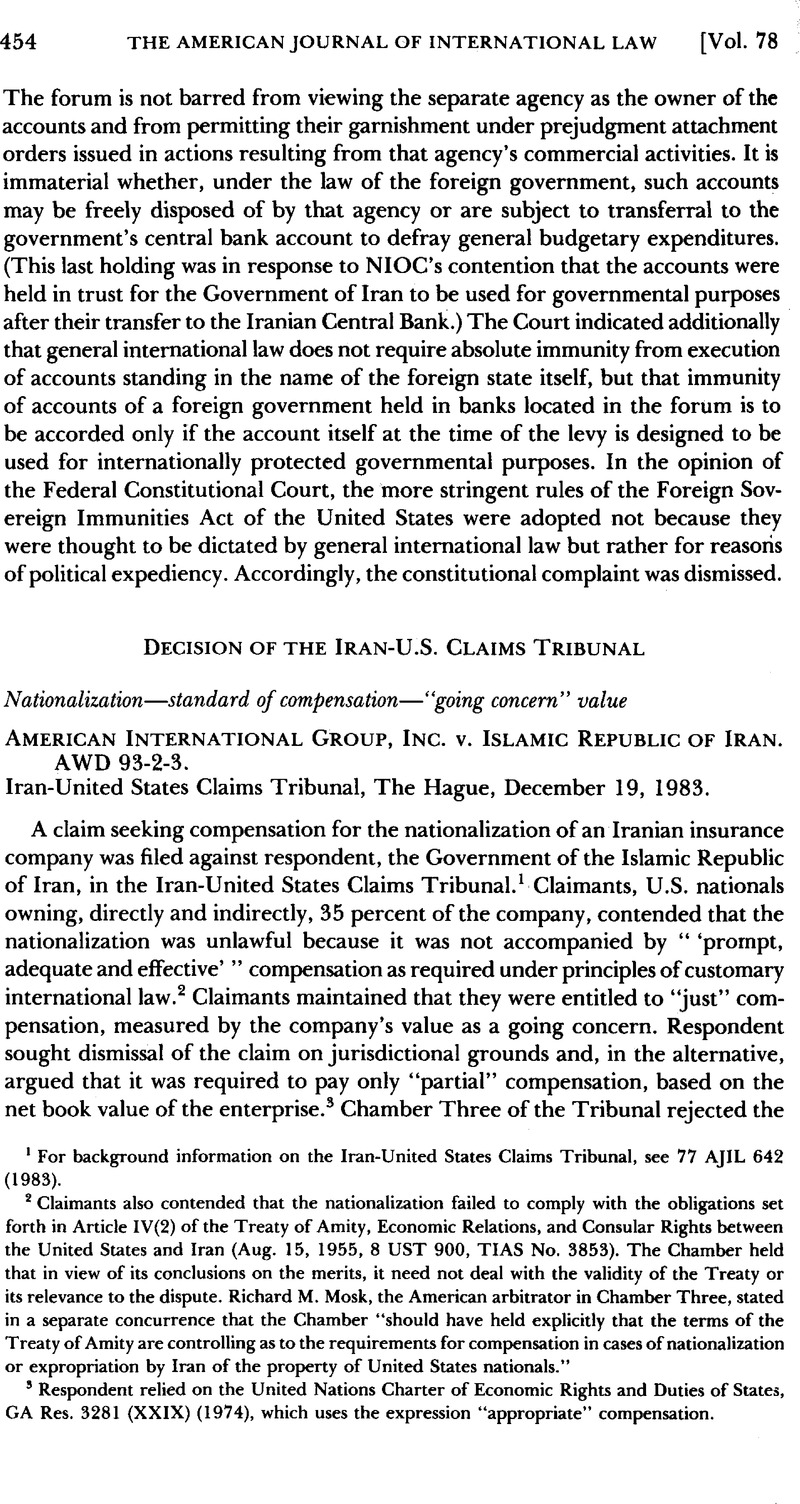Article contents
Decision of the Iran-U.S. Claims Tribunal
Published online by Cambridge University Press: 27 February 2017
Abstract

- Type
- Judicial Decisions
- Information
- Copyright
- Copyright © American Society of International Law 1984
References
1 For background information on the Iran–United States Claims Tribunal, see 77 AJIL 642 (1983).
2 Claimants also contended that the nationalization failed to comply with the obligations set forth in Article IV(2) of the Treaty of Amity, Economic Relations, and Consular Rights between the United States and Iran (Aug. 15, 1955, 8 UST 900, TIAS No. 3853). The Chamber held that in view of its conclusions on the merits, it need not deal with the validity of the Treaty or its relevance to the dispute. Richard M. Mosk, the American arbitrator in Chamber Three, stated in a separate concurrence that the Chamber “should have held explicitly that the terms of the Treaty of Amity are controlling as to the requirements for compensation in cases of nationalization or expropriation by Iran of the property of United States nationals.”
3 Respondent relied on the United Nations Charter of Economic Rights and Duties of States, GA Res. 3281 (XXIX) (1974), which uses the expression “appropriate” compensation.
4 The Iranian arbitrator in Chamber Three, Parviz Ansari Moin, refused to sign the award. Arbitrator Mosk wrote a separate concurrence, stating that the award “represents a ‘compromise solution’ in which I have joined so that some award could be issued.” See note 2 supra.
5 The Chamber noted that Article 20 of the Tribunal’s Rules of Procedure, while not directly applicable because it does not mention the addition of new parties to a claim, provides guidance for such a situation. Article 20 states that “[d]uring the course of the arbitral proceedings either party may amend or supplement his claim or defence unless the arbitral tribunal considers it inappropriate to allow such amendment having regard to the delay in making it or prejudice to the other party or any other circumstances.”
6 See Art. VII(2) of the Claims Settlement Agreement.
7 Art. 11(1) gives the Tribunal jurisdiction over “claims of nationals of the United States against Iran . . . aris[ing] out of debts, contracts . . . , expropriations or other measures affecting property rights.”
8 The Chamber observed that the book value method of measuring compensation is used mainly for liquidation purposes.
- 1
- Cited by


